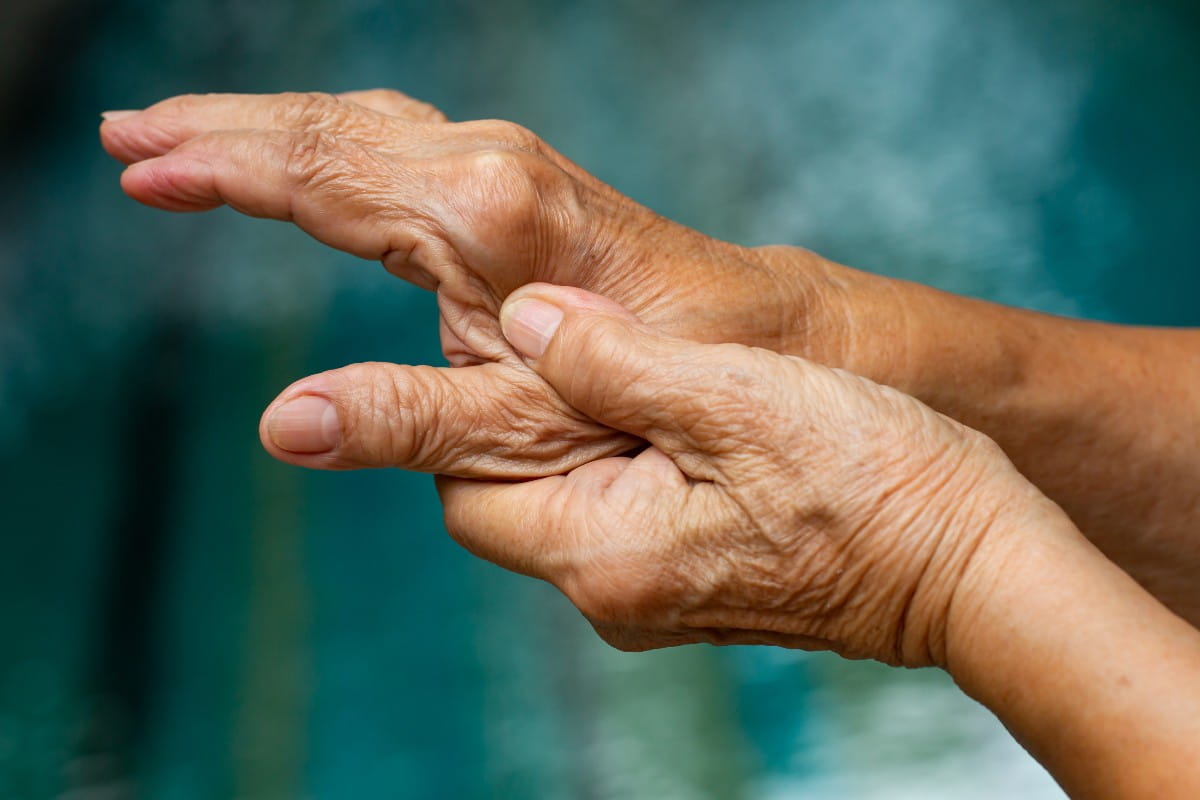If you’ve ever felt numbness, tingling or burning in your fingers, especially during sleep or after using your hands for repetitive tasks, you may be experiencing carpal tunnel syndrome. This condition happens when pressure on a nerve that travels into your hand and wrist causes nerve damage. Over time, this nerve damage can lead to an inability to feel textures with your fingers, leading to loss of fine motor skills and not feeling cuts or burns. Furthermore, weakness of hand grip and pinch strength becomes permanent.
“Many people feel this for the first time at night because their wrists are bent when they sleep and blood pressures are lower, both of which decrease blood flow to the median nerve in the carpal tunnel,” says James C. Kyriakedes, M.D., a Riverside orthopedic hand surgeon. “The symptoms initially come and go, but often eventually become constant.”
What Is Carpal Tunnel Syndrome?
Carpal tunnel syndrome (CTS) is a common condition that affects the median nerve in your hand. This nerve passes through a tunnel in your wrist called the carpal tunnel, which is surrounded by wrist bones and a thick ligament known as the transverse carpal ligament.

When inflammation and pressure increase inside this space – whether from genetic predisposition, medical conditions, occupations with vibratory equipment or other factors – the pressure and impingement on the median nerve increases. This leads to symptoms such as tingling, numbness and hand weakness. Most people notice the symptoms in the thumb, index finger, middle finger and part of the ring finger.
The small finger is typically not affected because it is supplied by a different nerve.
Common Causes and Risk Factors
There is no one cause for carpal tunnel syndrome. Instead, several contributing factors increase your risk of developing the condition. These include:
- Repetitive use of the hands and wrists, particularly when there is exposure to vibration, such as construction, woodworking, landscaping, and cleaning
- Hormonal changes during pregnancy or menopause
- Chronic conditions like diabetes, gout, lupus, or rheumatoid arthritis
- Prolonged bending or extension of the wrist, most commonly affecting people during sleeping hours
- Genetic and anatomical predisposition
- Women are more commonly diagnosed than men
“While numbness symptoms may seem harmless to patients in the beginning, nerve damage is often occurring that is progressive,” says Dr. Kyriakedes. “Furthermore, symptoms may be further ignored if they only occur briefly during sleep. I recommend initiating treatment before the condition progresses to significant pain or hand weakness, in order to have the best chance for a full recovery.”
Recognizing Carpal Tunnel Symptoms
Carpal tunnel syndrome symptoms can vary but typically start out mild and worsen over time if untreated. Symptoms may include:
- Numbness or tingling that occurs primarily in the thumb, the index, the middle and the ring fingers
- Burning or electrical sensations in the hand
- Pain that radiates up the forearm
- Weak grip strength or difficulty holding objects for periods of time
- Symptoms that worsen at night or with repetitive use
If you experience any of these signs, especially on a regular basis, it’s important to talk to your orthopedic specialist sooner rather than later. Early intervention can prevent further nerve damage and reduce the need for surgery.
At-Home Remedies and Early Treatment

For mild cases, there are steps you can take at home to ease discomfort and possibly slow the progression of carpal tunnel syndrome. These include:
- Wearing a wrist brace during sleep to keep your wrist in a neutral position during sleep. Daytime brace wear is not typically beneficial.
- Avoiding prolonged exposure to vibratory tools, including machinery or handles with impacts, like hammers and shovels
- Taking breaks from repetitive tasks or adjusting your workspace
- Using over-the-counter anti-inflammatory medications can help with discomfort, such as ibuprofen or naproxen. However, these will not stop progression of nerve damage.
- Applying warm or cold compresses can also be tried for comfort.
Medical Treatment Options
When at-home methods aren’t enough to relieve symptoms, nonsurgical medical interventions can help. These include:
- Working with a hand specialist to determine activity modifications that prevent further damage
- Stretching and nerve-gliding exercises may improve the mobility of the median nerve
- Ergonomic computer and desk changes can certainly improve comfort, but are no longer felt to be “enough” to prevent CTS or progression of CTS
- Steroid injections to reduce swelling and pressure on the nerve
Surgical Treatment for Carpal Tunnel Syndrome
If symptoms persist despite conservative treatment, carpal tunnel release surgery may be recommended. The goal of surgery is to relieve pressure on the median nerve by increasing the space in the carpal tunnel. This improves blood flow to the nerve, does not compromise wrist stability, and improves long-term hand function.
Dr. Kyriakedes performs a minimally invasive procedure called mini-open carpal tunnel release. This approach allows patients to begin using their hands for light activities almost immediately and return to more strenuous tasks within two to three weeks.
“If we diagnose carpal tunnel in its early stages, we can often treat it non-surgically,” says Dr. Kyriakedes. “Since the condition gets worse gradually, it’s important to see your health care provider as soon as you suspect you might have carpal tunnel.”
If you are noticing ongoing symptoms such as tingling, numbness, or wrist pain, don’t delay care. Carpal tunnel syndrome is highly treatable, and even reversible, especially when caught before it becomes too severe.
Read more about hand and wrist treatments at Riverside Health.


